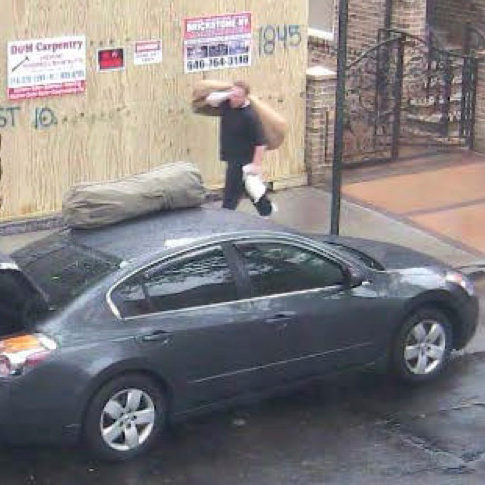
On Friday morning in Manhattan federal court, Christopher Kerrigan, 41, of Staten Island, was sentenced to seven-and-a-half years in prison for his role in two 2016 bank burglaries in Brooklyn and Queens, New York.
Kerrigan was part of a burglary crew that targeted banks in the New York City area, and usually broke into bank vaults and safe deposit boxes by cutting through a roof or a wall. The crew included Michael Mazzara, Anthony Mascuzzio, and Kerrigan’s older brother Charles Kerrigan. All of the defendants have already pled guilty. Christopher Kerrigan was the first to be sentenced.
According to the government, the crew stole approximately $430,000 in cash and property from the HSBC Bank branch in Borough Park, Brooklyn, and approximately $21 million in cash and property from the Maspeth Federal Savings Bank branch in Rego Park, Queens. See a previous post about the Maspeth break-in here.
Christopher Kerrigan’s sentencing hearing
Shortly after the sentencing hearing started, U.S. District Judge Katherine Forrest said that Kerrigan would not be receiving acceptance of responsibility credit because he refused to assist the authorities in the recovery of stolen items. Judge Forrest said that Kerrigan assisted in the preparation for the burglaries, he was the lookout, he transported equipment and supplies from the banks, and he was present when the proceeds were divided up.
According to the government, Kerrigan received $250,000 for his participation in the burglaries.
When Kerrigan’s attorney, Joseph Benfante, pointed out that a presentence report stated that Kerrigan did not directly participate in the burglaries, Judge Forrest disagreed with that characterization and reminded him that Kerrigan was the getaway car driver and the lookout. Later on, she noted that there is a photo of Kerrigan holding a duffel bag coming out of the house that served as the staging area for the heists.
Benfante said his client was called upon to participate in the first burglary at the last minute, that he was a bungler, and that the other defendants were not happy with him. He explained that Kerrigan led a humble life as a musician, that he has a drug addiction, and this is out of character for him. Benfante pointed out that Kerrigan’s older brother is a defendant in this case.
“I will forever carry my disgraceful conduct in my heart and I will forever be ashamed of my actions and participation in these burglaries.”
-Christopher Kerrigan
When Kerrigan addressed the court, he made a brief statement and apologized to the victims, his mother, the court, the prosecutors, and his fiancee.
Prosecutor Benet Kearney said the victims who held safe deposit boxes at the banks experienced a loss of trust. She pointed out that the personal items that had no street value were likely destroyed.
Before passing sentence, Judge Forrest called Kerrigan an important player who had advance knowledge of the crimes, and pointed out that it happened more than once. She told Kerrigan that he was part of a group of individuals who stole people’s memories.
At the end of the hearing, Kerrigan was remanded to the custody of the U.S. Marshals. He had been on home detention with electronic monitoring since his arrest in January 2017.
The sentence also includes three years of supervised release, forfeiture of any proceeds of the offenses, and restitution to the victims of the thefts.
Victim impact statements
Prior to the sentencing hearing, victims of the burglaries were given an opportunity to address the court. All four defendants were present in the courtroom for the victims’ session.
One victim of the Maspeth burglary spoke about the impact of the theft on her family. This victim’s parents were Holocaust survivors, and the family kept precious jewelry and important documents in their safe deposit box at the Maspeth Bank. After the break-in, she was afraid to tell her elderly mother about their losses, but her mother read about it in the New York Times and told her that “it’s just stuff, it’s ok” a few days before she died.
“Two years later, when I think back at what happened, my body still trembles as I drive by on my way to work. I find myself unable to look at the bank feeling ill.”
-Victim impact statement
Judge Forrest also read excerpts from several victim impact statements. One statement was submitted by a 63-year-old small business owner who held two safe deposit boxes at the Maspeth Bank. This victim lost jewelry inherited from his mother and mother-in-law that he intended to use to help his five children and to sustain his retirement. He was forced to delay his retirement because of the losses.